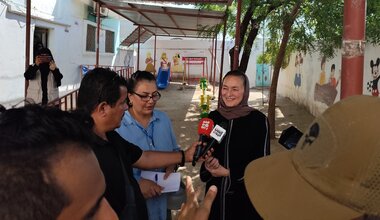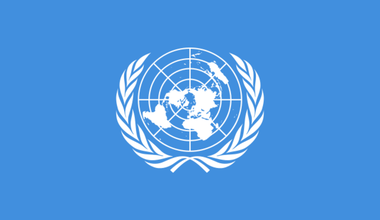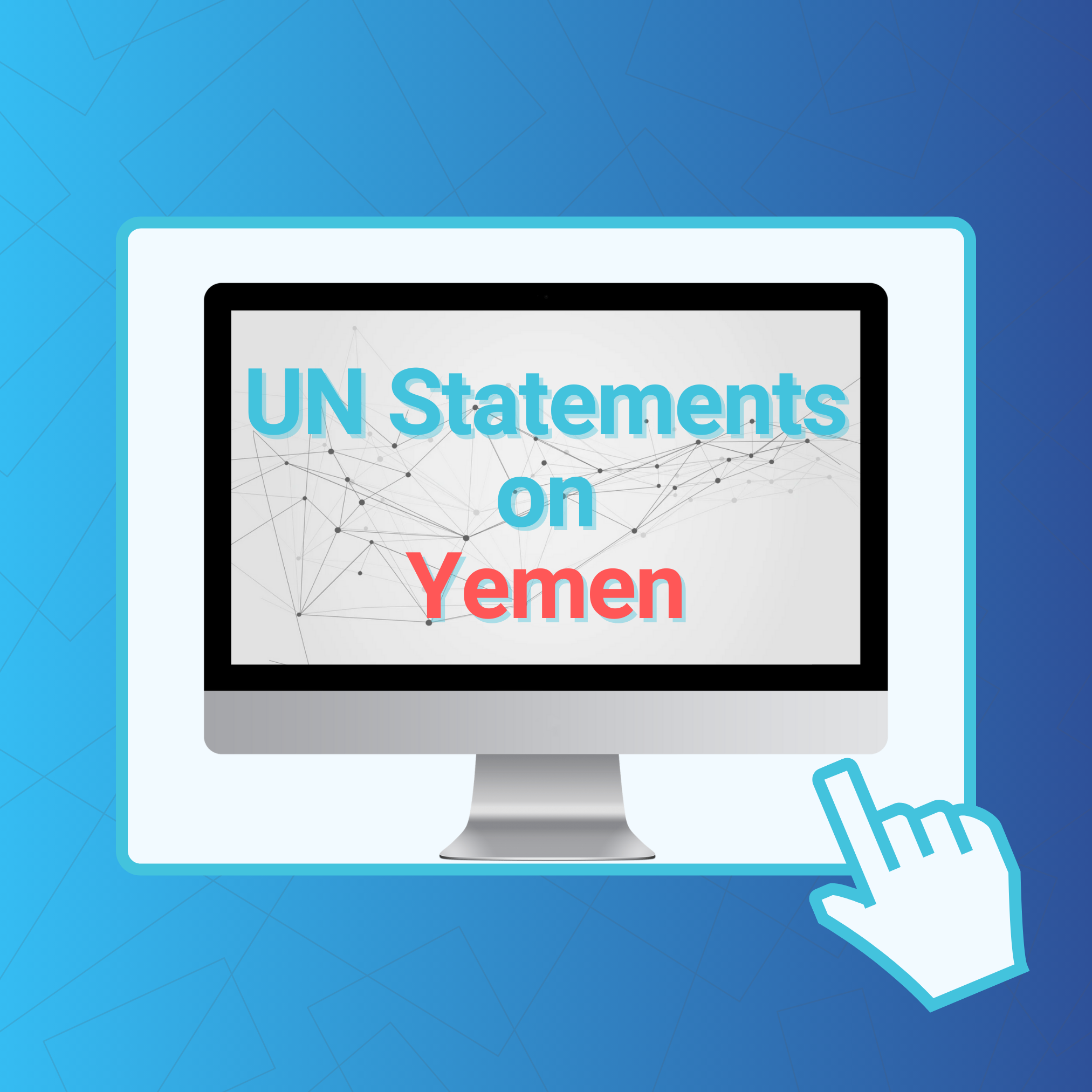Safeguarding Lifelines: UNMHA's Work in Hudaydah Ports
"Hudaydah ports are doors to Yemen. Commercial activities, humanitarian support and nearly all facets of life in Yemen pass through these critical ports." These words from UNMHA Officer-in-Charge based in the coastal city of Hudaydah, capture the reality faced by millions of Yemenis who depend on the flow of humanitarian goods and commercial imports through Hudaydah, Al Salif, and Ras Isa ports. In the face of growing tensions and renewed violence, UNMHA renews its resolve to strengthen efforts across these vital areas.
Ports as Strategic and Humanitarian Gateways
The Hudaydah Agreement, signed in December 2018, aimed at demilitarising Hudaydah’s ports and maintaining their civilian nature as key steps to preventing famine and sustaining the humanitarian pipeline. Keeping the ports open and fully functional continues to be essential to avoid worsening Yemen's already severe humanitarian crisis. The World Food Programme reported that in 2024, about 4.87 million tons of food and 3.04 million tons of fuel, crucial for humanitarian efforts, were unloaded at these ports. Hudaydah Port serves as Yemen’s principal lifeline, handling approximately 70% of the nation’s commercial imports and about 80% of all humanitarian aid entering the country. Therefore, their continued functioning is not a luxury; it is a lifeline.
UNMHA is mandated to support implementation of the Hudaydah Agreement and deploys regular patrols to the ports to observe, verify, and report on adherence to the terms of the agreement. The mission acts as both a stabilizing presence and an impartial intermediary.
Maintaining a Fragile Line
UNMHA teams patrol the ports three times a week, observe vessel movements, and meet with local officials. Over the past 12 months, it conducted over 150 patrols to the ports, marking a 15% increase from the previous year. “Our presence helps deter actions that could lead to further conflict,” says a military observer at UNMHA. “But more importantly, it signals that the international community is still watching, still engaged.”

Impact of Airstrikes on Hudaydah Ports
In recent months, airstrikes on Hudaydah governorate in response to strikes in the Red Sea and towards Israel have reignited fears of a broader escalation. UNMHA patrols observed the damage caused on the port infrastructures by multiple airstrikes. Consequences – such as significantly reduced port activity and heightened civilian anxiety – are also visible. UNMHA has increased its monitoring and reporting in response, reiterating the United Nations Secretary-General’s call for respect for civilian facilities.
On the Ground: Challenges and Resolve
Operating in Hudaydah Governorate is not without difficulty. Limited movement, security concerns, and fragile local dynamics pose constant hurdles. UNMHA staff, however, are committed to supporting de-escalation, conflict prevention, and fostering peace and stability in Hudaydah. National and international staff alike emphasize the importance of community engagement and transparency in building acceptance and trust, especially in a volatile environment. “UNMHA has lived side-by-side with Yemenis in Hudaydah Governorate since 2019. We have seen the positive impacts that the ceasefires have brought to the lives of people, as well as the devastating impacts of diminishing access for humanitarian support through the ports as the port capacities have been severely reduced". Said Officer-in-Charge of UNMHA.
More than Symbolic
In a context of heightened tensions, UNMHA’s role is more than symbolic. It is a form of monitoring and documentation with a view of creating a conducive environment that supports dialogue. And the mission’s impartial presence offers a critical buffer.
UNMHA reaffirms Secretary-General’s call to all parties to cease attacks and respect their humanitarian obligations to protect civilian infrastructure. Read the Secretary-General’s statement on 19 April 2015 [here].
 UN
UN






